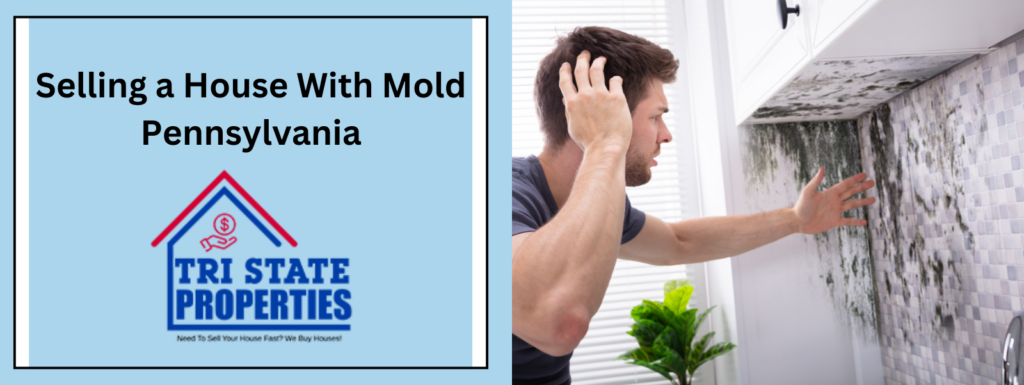
Understanding The Basics: What Is Mold?
Mold grows well in moist and humid places, such as roof leaks, windows, wallpaper, drywall, etc. It can cause health issues. In Pennsylvania, mold growth reduces the value of a property and complicates the selling process due to concerns about remediation costs and health issues. To trade in a mold-damaged property, homeowners must understand mold identification, causes of growth, and protocols for mitigating its effects. Understanding the risks that mold can cause helps homeowners make informed decisions about selling their property and ensure the safety of potential occupants.
Table Of Contents
- Common Sources Of Indoor Mold Problems And How To Address Them
- Uncovering The Dangers Of Untreated Mold Growth In Homes
- Taking Action: Effective Methods For Mold Remediation
- The Importance Of Dealing With Mold In Your Philadelphia Property
- Exploring The Option Of Selling A House With Existing Mold “as-is”
- Legal Considerations: Is It Permissible To Sell A House With Mold?
- Weighing Your Options: Can You Sell A House With Existing Mold?
- The Importance Of Disclosure When Selling A House With Known Mold Issues
- Does Pennsylvania Have Mold Laws?
- Can You Sell A House With Mold In Pa?
- Should I Sell My House If It Has Mold?
- Is Mold A Deal Breaker When Buying A House?
Common Sources Of Indoor Mold Problems And How To Address Them
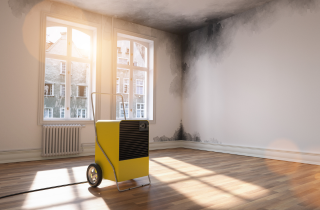
Mold can cause health issues and expensive costs. The presence of mold in a property reduces its value and produces complications during the selling process. Owners should know about identifying mold, its frequent causes, and the most effective remediation procedures. This information can assist them in assuring the safety of future occupants and making well-informed decisions regarding the sale of their property.
Fungus is an issue for homeowners, particularly when they’re considering selling their property. Homeowners must inspect their properties for water damage and moisture growth and fix any breaches to prevent mildew growth. Moisture control and ventilation can help regulate indoor humidity. Property owners can identify and address mold growth sources to expedite mold-affected property’s selling process.
Uncovering The Dangers Of Untreated Mold Growth In Homes
Due to the moist weather in Pennsylvania, mold is a problem in properties. It affects the property structure and health of homeowners. As awareness of the potential dangers associated with mold grows, purchasers are increasingly likely to withdraw from a transaction upon discovering its existence. To successfully sell a mold-affected home in Pennsylvania, proprietors should educate themselves on the risks associated with untreated mold growth and implement suitable remedial measures before listing the property.
Taking Action: Effective Methods For Mold Remediation
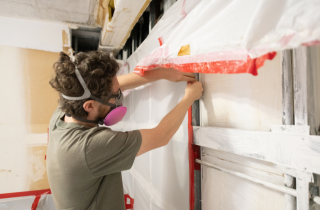
Selling a property with mold might affect the sale. To expedite the process, homeowners must act quickly to fix the situation. This entails locating and resolving the moisture source, disinfecting the affected areas, and disposing of contaminated materials. Adequate humidity and ventilation must also be maintained to prevent mildew growth. By adhering to these measures, a smooth sale can be facilitated.
The Importance Of Dealing With Mold In Your Philadelphia Property
Mold growth is a common problem for homeowners in Pennsylvania, particularly in older homes and humid climates like Philadelphia. To avoid potential health risks and loss of property value, homeowners should conduct a comprehensive mold inspection before listing their property for sale. Neglecting mold growth could lead to legal issues and impede the selling process. It’s critical to address any mold issues in your Philadelphia property for a smooth transaction during the sale process.
Exploring The Option Of Selling A House With Existing Mold “as-is”
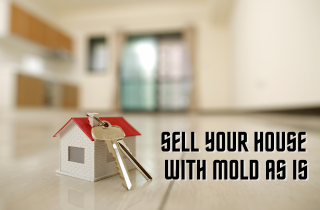
Pennsylvania homeowners who want to sell a mold-infested residence may need to consider selling it “as-is”, but they should be aware that this choice can significantly reduce its value and deter potential buyers. Moreover, not disclosing the mold could result in legal consequences. Before making any decisions, homeowners should understand the laws and procedures governing the sale of a house affected by mold.
If you need help when selling your property with mold, we can help! Just give us a call or fill out our form! We will be happy to help you! Check out our property-buying process!
Legal Considerations: Is It Permissible To Sell A House With Mold?
Homeowners in Pennsylvania must disclose any mold problems to potential buyers as required by law. Failure to do so may lead to legal repercussions for both the seller and the agent if one is involved. It is important for homeowners to understand these legal considerations before selling a mold-infested property.
Weighing Your Options: Can You Sell A House With Existing Mold?
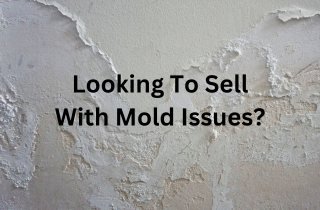
If a homeowner in Pennsylvania has a property with mold must consider all the risks involved, including financial and property value effects. Each situation is unique, so it’s important to address individual scenarios thoroughly before deciding.
The Importance Of Disclosure When Selling A House With Known Mold Issues
It’s important to inform the new possible owner of the property’s condition. Not informing the owner can bring legal consequences to the owner’s reputation. Mold can change a property’s value and pose health problems. By being fully honest, sellers can avoid troubles and make the process easier while empowering buyers to make informed decisions and take necessary precautions. Honesty and transparency are essential when selling a property with mold issues.
Does Pennsylvania Have Mold Laws?
Pennsylvania homeowners facing the sale of a mold-impacted house may wonder about the state’s laws and regulations regarding this issue. Fortunately, Pennsylvania has specific laws in place to protect buyers and sellers in these situations.
The state follows the Environmental Protection Agency’s guidelines for mold remediation, which require licensed professionals to assess and remove any mold present in a property. Additionally, sellers must disclose any known mold issues to potential buyers, providing them with all necessary information before completing the sale.
It is important for homeowners to familiarize themselves with these laws and understand their rights when navigating the sale of a mold-impacted house in Pennsylvania.
Can You Sell A House With Mold In PA?
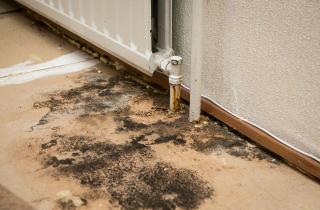
If you are wondering if you can sell your property with mold, yes, you can! However, you might need to consider that there are legal requirements to disclose the problem and that you must address it before listing your property. This means hiring a certified mold inspector to evaluate and remediate the damage. Failure to disclose or address mold can result in legal consequences. You can successfully sell a mold-affected home in Pennsylvania with initiative and knowledge. If you are considering selling, don’t hesitate to call us at (267) 703-9956 or fill out our short form. We can purchase your property in any condition.
Should I Sell My House If It Has Mold?
Homeowners who discover mold in their homes may face difficulties when selling their properties due to potential buyers concerns. However, before deciding to sell, homeowners must consider many factors, including the extent of the mold problem and compliance with state regulations. This article provides essential considerations for Pennsylvania homeowners evaluating the sale of a mold-affected home.
Is Mold A Deal Breaker When Buying A House?
Prospective homebuyers in Pennsylvania are concerned about mold when purchasing a property due to potential health and financial risks. Homeowners should rectify any mold issues before selling to prevent negative impacts on market value and legal repercussions. Both parties must recognize the importance of eliminating mold for a successful sale.
At Tri State Properties, we buy your house regardless of its condition or situation. If you have any questions, contact us at (267) 703-9956 or complete our form. You can also review our clients’ testimonials to see their selling experiences!
Contact Us
We would love to hear from you! Please fill out this form and we will get in touch with you shortly.
![companies that buy houses [market_city]](https://cdn.carrot.com/uploads/sites/68538/2023/08/Company-That-Buys-Houses.webp)

